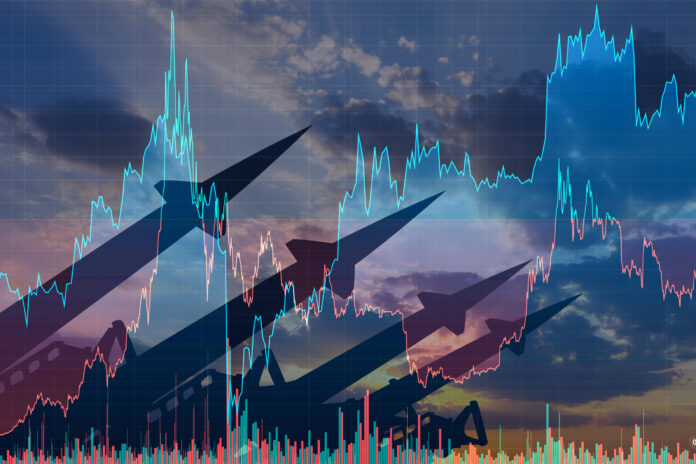The sensitivity of equity markets to carbon pricing risk has increased over the past 12 months due to the Russia-Ukraine conflict, research from Van Lanschot Kempen has found.
The Dutch investment manager’s base scenario of a $100 increase to global carbon prices that polluting companies pay, entails a potential 6%-30% fall in global equity valuations.
This ranged from 6% in the case of Scope 1 and 2 emissions and up to 30% for Scope 1, 2, and 3 emissions. Scrope 1 and 2 emissions are emissions that companies have more control over, while scope 3 tends to be in their supply chains.
A $150 global carbon price increase on polluting companies could cause an even greater fall in global equity valuations – ranging from 9% in the case of Scope 1 and 2 emissions and up to 43% for Scope 1, 2 and 3 emissions.
Van Lanschot Kempen said the increase is necessary within developed countries to achieve the Paris climate goals.
Maarten Edixhoven, chair of the management board of Van Lanschot Kempen, said. “The current energy crisis has raised concerns that meeting global climate goals has become less urgent.
“However, nature is telling us that it is still a high priority by the number of huge environmental impacts we are seeing. We think the focus on reducing carbon emissions will – and should – only get stronger in the medium term.
”The analysis showed the impact of higher carbon prices and the scope of emissions coverage is not fully priced into markets. This has created opportunities for investors allocating to the transition economy.
Michel Iglesias del Sol, chief investment strategist at the Dutch firm, said long-term asset owners should “reposition equity portfolios to make them more robust to deal with changes in carbon pricing and regulation”.
He added: “This could mean reallocating away from standard indices, or tracking alternative sustainable benchmarks. As the analysis suggests, an ESG leader or transition pathway index will be better protected against the risks of higher carbon tax.”
The analysis suggested clean energy, clean water, food supply and sustainable farmland are key long-term allocations that should benefit from the climate transition and mitigate physical climate risks.
© 2022 funds europe





